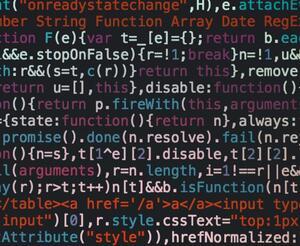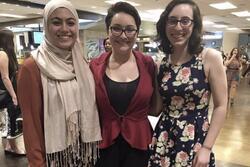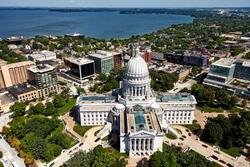What a Coding Program Taught Me about Privilege
“If anyone knows where she went after class or has seen or heard from her...please let us know so that we can make sure she’s ok.”
These words come from an email my teacher sent last summer after a girl in our classroom at the Girls Who Code Summer Immersion Program did not return home after class one Friday. The girl was found that Monday, after police involvement, but the 65 hours when her whereabouts were unknown were some of the scariest in my life.
Before she was found, three of my closest friends from the program and I talked about it, theorizing about what we thought had happened. One of my friends shared that, because of her privilege, she had never experienced something like this before. She said that she was struggling to distill her emotions, a sentiment I strongly related to. Clearly uncomfortable, my other friend brushed off her comment, saying that privilege had nothing to do with it. Even though the four of us each experienced very different levels and types of privilege in our lives, the discomfort and tension brought up by the word “privilege” was palpable. Just as we bonded over frustration with Boston public transportation’s inconsistency, privilege drove us apart.
Up until this past summer, I’d never spent an extended period of time building relationships and community with a truly diverse group of people. I’ve attended a Jewish day school with an almost entirely white and affluent student body since kindergarten. While I’ve played on local softball and basketball teams outside of school, the population in the city that I live in is over 80 percent white. At Girls Who Code, my class was primarily made up of women of color coming from low-income households. As one of four white girls in the class of twenty, I was confronted by my privilege in a way that I'd never been before.
Privilege is hard to think about. The idea that certain factors like race, socioeconomic status, and location grant some people major unearned advantages is repulsive. No one wants to think that their accomplishments are undeserved, or that their success is due to the color of their skin or the money in their wallet. It’s even harder to look a friend in the eye and acknowledge that one of you will have an easier life because of the family you were born into.
I think this is why my friend at Girls Who Code instinctively shut down our potential conversation about privilege over the summer. If our conversation had continued, it would have been awkward. The four of us sitting together that day each come from different communities in the greater Boston area. One lives in an upper middle class suburb similar to my own, another in an underfunded area in inner-city Boston, and the third from a very diverse city, about an hour outside of Boston. We each experience privilege so differently. Some of us were given a leg up in life, while others are constantly knocked down by society. When my friend resisted talking about privilege, I think that she also might have wanted to avoid grouping herself with the girl who was missing; they came from similar backgrounds. She was the one most confident that the girl would return safely because she had experience with similar situations. Had we discussed our privilege, I would have had to admit that after the summer ended and I returned to my upper-middle class, predominantly white bubble, I most likely would not find myself in a similar situation again. Did my three friends and I have overlapping interactions with privilege?
Recently, I’ve found myself noticing my privilege in places I can’t believe I overlooked before. I’m privileged to be able to walk into a store and buy band-aids or bras that match my skin tone. I’m privileged to have food security, to live in a safe neighborhood, and to attend a private Jewish day school. While I might experience discomfort when recognizing my privilege, it’s crucial to; we must use our privilege to amplify the voices of those less privileged. Otherwise, harmful and divisive systems of privilege will continue to strengthen and ultimately prevail.
Actress Jane Fonda exemplifies how someone can use their privilege to gather attention and resources for a cause, and to magnify the voices of others who are less privileged. At age 81, Fonda seems to get herself arrested on a weekly basis at climate change protests and rallies. Due to her celebrity status, the media watches her every move, ultimately reporting on the rallies Fonda attends. In her own words, Fonda said, “Why be a celebrity if you can’t leverage it for something important?”
Privilege isn’t an excuse to stop trying. Rather, it should be motivation to try even harder and to use whatever platform I have for good. While discourse surrounding privilege is often uncomfortable and awkward, it’s imperative for growth and improvement. It’s important to recognize both the small and large impacts of privilege and for those with privilege to work to amplify the voices and actions of those without.
This piece was written as part of JWA’s Rising Voices Fellowship.







This is so interesting!
Beautifully and powerfully written, Ellie. So proud of you, roomie!